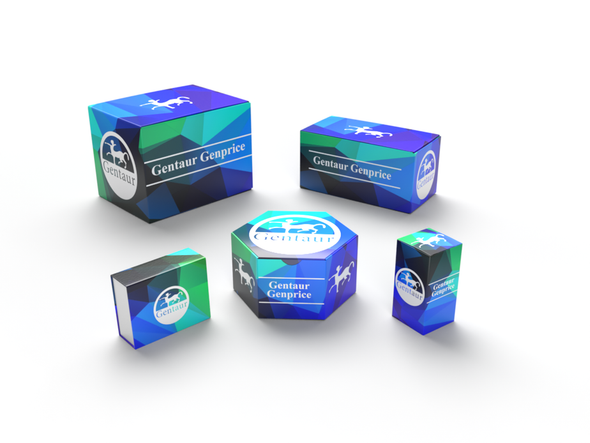BW
RANKL polyclonal Antibody | BS72037
- SKU:
- BW-BS72037
- Availability:
- Usually ships in 5 working days
Description
RANKL polyclonal Antibody | BS72037 | Gentaur UK, US & Europe Distribution
Host: Rabbit
Reactivity: Human,Mouse,Rat
Application: WB IHC IF
Application Range: WB 1:500 - 1:2000 IHC 1:50 - 1:200 IF 1:50 - 1:200
Background: This gene encodes a member of the tumor necrosis factor (TNF) cytokine family which is a ligand for osteoprotegerin and functions as a key factor for osteoclast differentiation and activation. This protein was shown to be a dentritic cell survival factor and is involved in the regulation of T cell-dependent immune response. T cell activation was reported to induce expression of this gene and lead to an increase of osteoclastogenesis and bone loss. This protein was shown to activate antiapoptotic kinase AKT/PKB through a signaling complex involving SRC kinase and tumor necrosis factor receptor-associated factor (TRAF) 6, which indicated this protein may have a role in the regulation of cell apoptosis. Targeted disruption of the related gene in mice led to severe osteopetrosis and a lack of osteoclasts. The deficient mice exhibited defects in early differentiation of T and B lymphocytes, and failed to form lobulo-alveolar mammary structures during pregnancy. Two alternatively spliced transcript variants have been found.
Storage & Stability: Store at 4°C short term. Aliquot and store at -20°C long term. Avoid freeze-thaw cycles.
Specificity: Recombinant fusion protein containing a sequence corresponding to amino acids 78-317 of human RANKL
Molecular Weight: ~ 32 kDa
Note: For research use only, not for use in diagnostic procedure.
Alternative Names: CD254; ODF; OPGL; OPTB2; RANKL; TNLG6B; TRANCE; hRANKL2; sOdf
Immunogen: Recombinant fusion protein containing a sequence corresponding to amino acids 78-317 of human RANKL
Conjugate: Unconjugated
Modification: Unmodification
Purification & Purity: The Antibody was affinity-purified from rabbit antiserum by affinity-chromatography using epitope-specific immunogen and the purity is > 95% (by SDS-PAGE) .
Pathway:






